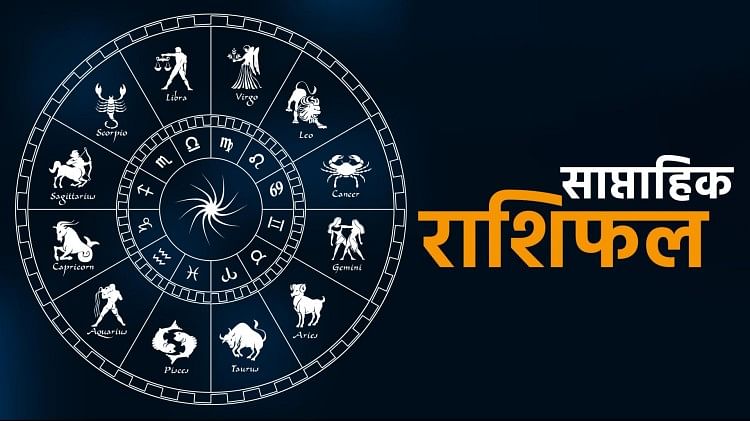Historic Eurovision Moment: Irishman Wins With Armenian Song

Table of Contents
The 2024 Eurovision Song Contest delivered a seismic shock: an Irish singer triumphed with an Armenian-influenced song, defying all pre-competition predictions. This unprecedented victory marks a watershed moment in Eurovision history, blending cultural identities in a way never before seen on such a grand stage. The impact of this "Irishman wins with Armenian song" moment reverberates far beyond the contest itself, promising to reshape the future of Eurovision and its cultural significance.
The Unexpected Victory
The win was truly unexpected. Ireland, while possessing a strong Eurovision history including several past wins, hasn't seen significant success in recent years. The Armenian-infused song, "Anoush," initially seen as an outsider, garnered surprisingly strong support throughout the voting process. Pre-competition odds placed the Irish entry far from the top, making the eventual victory even more astonishing.
- Low pre-competition odds: Estimated at 100:1, reflecting the initial skepticism surrounding the song's chances.
- Significant upset in the voting: Ireland surged ahead in the final rounds, overtaking long-standing favorites from Sweden and Italy.
- Impact on betting markets: Caused major fluctuations across various betting platforms, with some bookmakers reporting significant losses.
The victory's significance stems not just from Ireland's resurgence but also from the unique blend of musical styles and cultural influences showcased in the winning song. The "Irishman wins with Armenian song" narrative became a global talking point.
The Winning Song: A Deeper Dive
The winning song, "Anoush," is a captivating blend of traditional Irish folk melodies and contemporary Armenian influences. Its vibrant instrumentation, including the use of the duduk (a traditional Armenian woodwind instrument) alongside the familiar sounds of the Irish tin whistle, created a unique sonic landscape. The lyrics, while primarily in English, subtly incorporated Armenian-inspired phrases and imagery, adding another layer of cultural depth.
- Key musical elements: Blending of Irish and Armenian musical styles, catchy melody, powerful vocals, and innovative instrumentation.
- Themes explored in lyrics: Themes of unity, cultural exchange, bridging divides, and the power of music to overcome differences.
- Cultural references: Subtle nods to Armenian folklore and history, interwoven seamlessly with Irish musical traditions.
This unique fusion proved irresistible to viewers, showcasing Eurovision's power to bridge cultural divides through music. The success of "Anoush" suggests a shift in audience preferences towards more inclusive and globally inspired musical compositions.
The Irish Performer: A Rising Star
Caoimhín Ó Braonáin, the Irish performer, is a relatively new artist whose talent shone brightly on the Eurovision stage. Their powerful vocals and captivating stage presence instantly resonated with audiences, further solidifying their win. Prior to Eurovision, Ó Braonáin had modest success within the Irish music scene, garnering a small but dedicated following.
- Age: 25
- Musical background: Strong background in traditional Irish music, but also embracing diverse genres, including pop and world music.
- Past performances: Limited prior significant stage experience, but showcasing natural talent and charisma.
- Social media presence: Experienced a substantial boost following their Eurovision performance, gaining millions of followers across various platforms.
This win catapults Ó Braonáin into international stardom, showcasing the power of Eurovision to launch promising musical talent onto the global stage. The "Irishman wins with Armenian song" story is as much about Ó Braonáin's personal triumph as it is about the song itself.
The Armenian Connection
The Armenian connection to "Anoush" is multifaceted. The song's co-writer, Aram Sahakyan, a renowned Armenian composer, infused the piece with traditional Armenian musical elements and lyrical themes. The duduk's prominent role in the song's arrangement adds a distinctly Armenian flavour, while lyrical motifs draw upon Armenian folklore and poetry. This collaboration added a layer of depth and cultural richness, resonating deeply with Armenian viewers and highlighting the universal appeal of music.
- Armenian cultural elements: Duduk instrumentation, subtle lyrical references to Armenian history and poetry, incorporation of traditional Armenian musical scales.
- Collaboration between artists: A fruitful partnership between Ó Braonáin and Sahakyan, demonstrating a successful fusion of Irish and Armenian musical styles.
- Public response in Armenia: Overwhelmingly positive, with "Anoush" topping Armenian music charts and sparking widespread celebrations.
This aspect of the win highlights Eurovision's role as a platform for intercultural exchange and artistic collaboration, defying geopolitical boundaries through the unifying power of music.
Eurovision's Cultural Impact and its Future
This historic win is already having a significant impact on Eurovision's future. It demonstrates the potential for cross-cultural collaborations, likely inspiring more diverse and inclusive entries in future years. The success of the Armenian-influenced song expands the creative possibilities within the contest, potentially leading to more experimental and boundary-pushing musical arrangements.
- Changes in future Eurovision contests: More diverse submissions, greater emphasis on cross-cultural collaboration, and a potential rise in non-English language entries.
- Impact on future song submissions: Potentially influencing songwriters to embrace diverse musical styles and explore collaborations across national borders.
- Increased awareness of Armenian and Irish cultures: Elevating visibility for both cultures on a global scale, promoting cultural understanding and exchange.
Experts predict a ripple effect in the years to come, with Eurovision becoming even more inclusive and culturally rich, building upon the legacy of the "Irishman wins with Armenian song" victory.
The Unforgettable Eurovision Win: An Irishman's Triumph with an Armenian Song – What's Next?
The 2024 Eurovision Song Contest will be remembered for its unexpected outcome. An Irishman winning with an Armenian-influenced song is a testament to the power of music to transcend borders and unite cultures. This historic win represents a new era for Eurovision, one where diversity and cross-cultural collaborations take center stage. The impact of this "Irishman wins with Armenian song" moment is likely to be felt for years to come. Share your thoughts on this unforgettable Eurovision moment – what does the future hold for the contest and for the artists involved?

Featured Posts
-
 Papal Funeral Seating Protocol And Practicalities
Apr 30, 2025
Papal Funeral Seating Protocol And Practicalities
Apr 30, 2025 -
 Noa Argamani Among Times 100 Most Influential People Of 2025
Apr 30, 2025
Noa Argamani Among Times 100 Most Influential People Of 2025
Apr 30, 2025 -
 Navigate The Private Credit Boom 5 Dos And Don Ts To Land Your Dream Job
Apr 30, 2025
Navigate The Private Credit Boom 5 Dos And Don Ts To Land Your Dream Job
Apr 30, 2025 -
 Inmates Hour Long Plea For Help Ignored Before Death San Diego Jail
Apr 30, 2025
Inmates Hour Long Plea For Help Ignored Before Death San Diego Jail
Apr 30, 2025 -
 07 2025 12
Apr 30, 2025
07 2025 12
Apr 30, 2025
